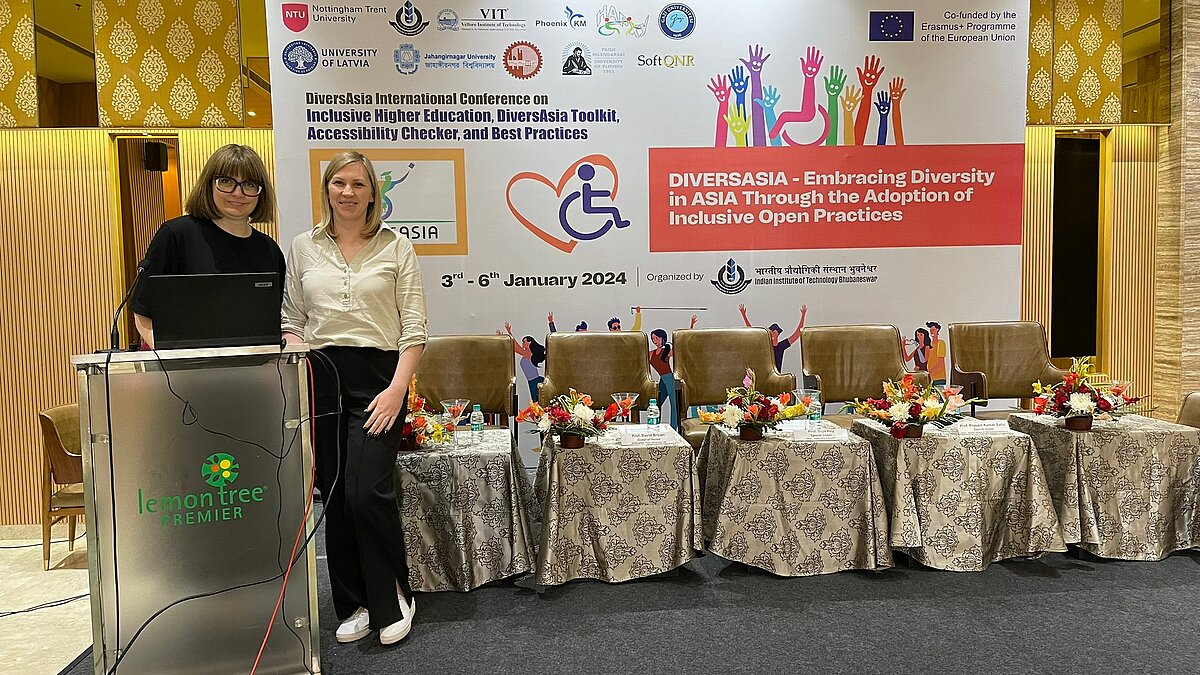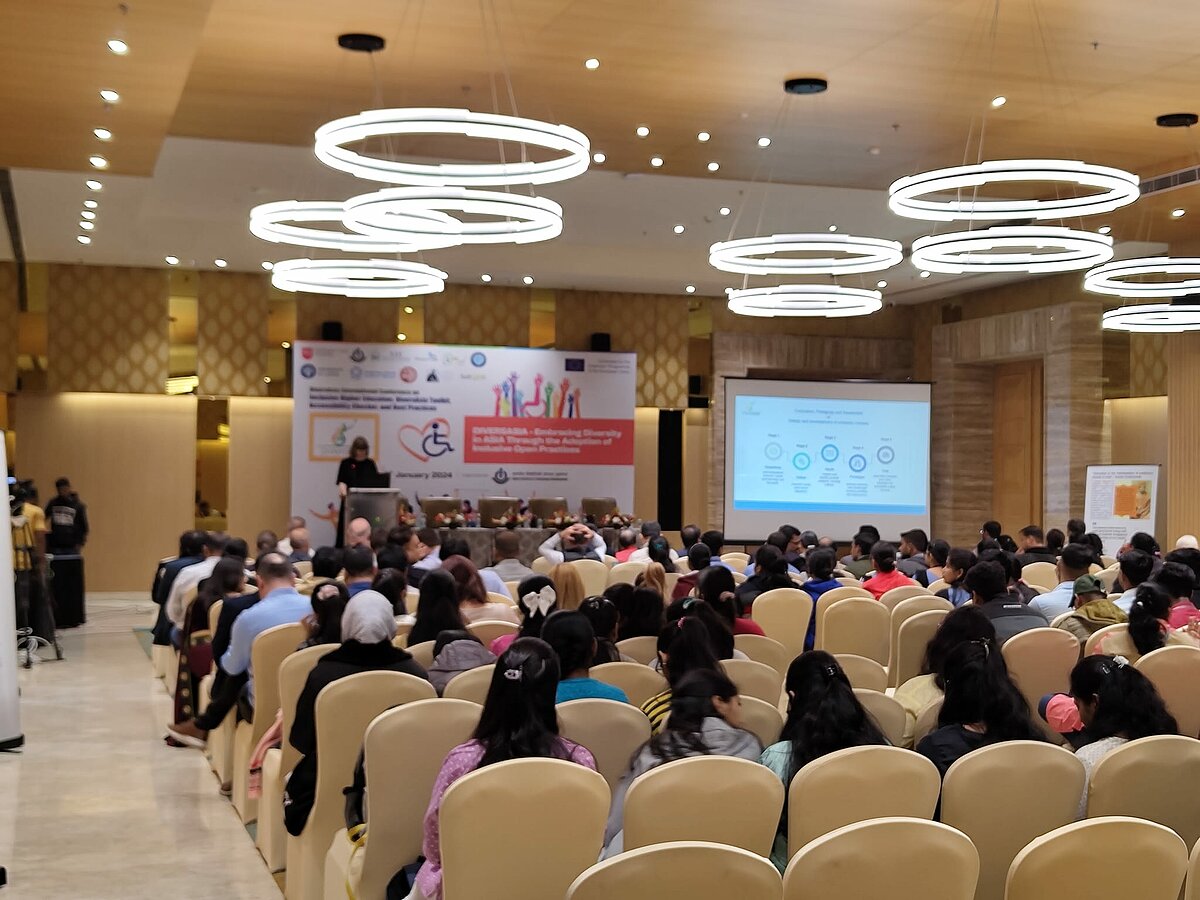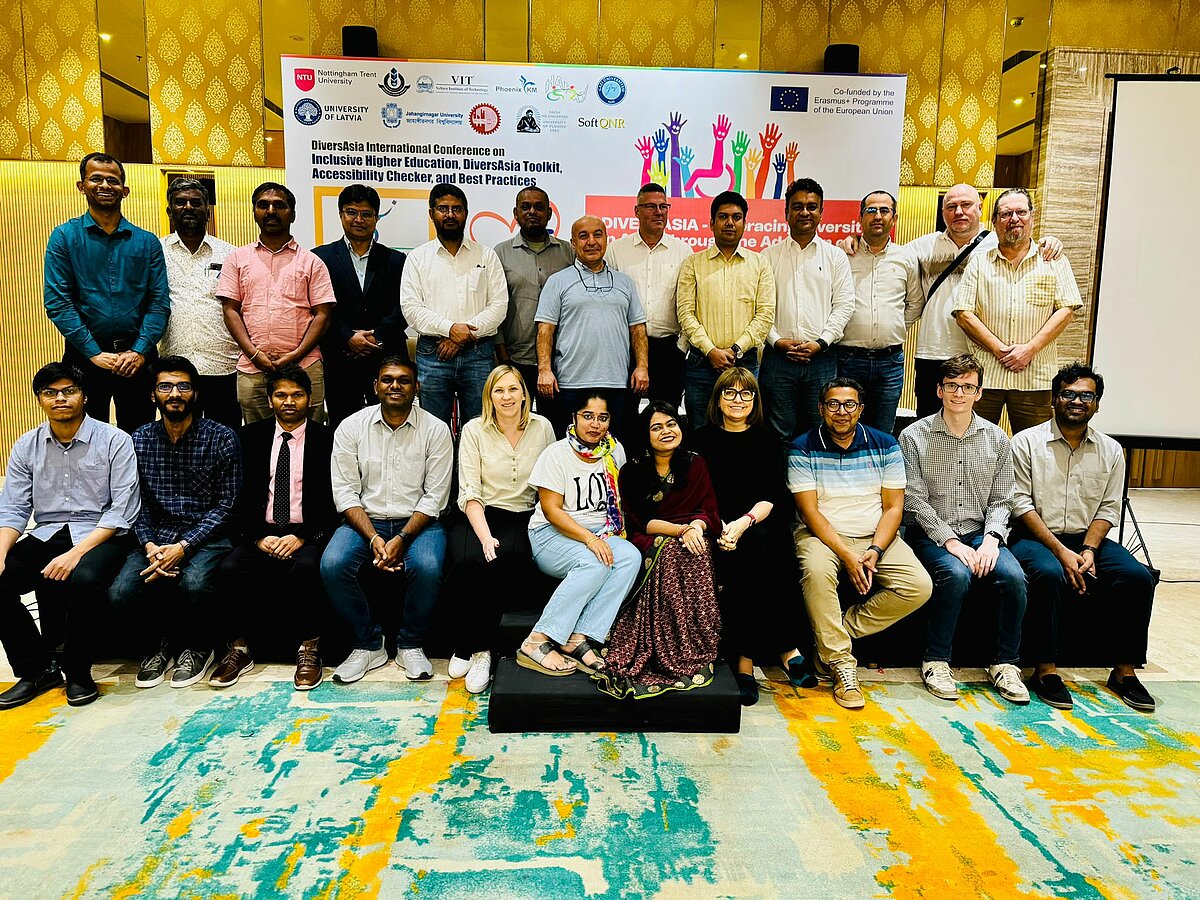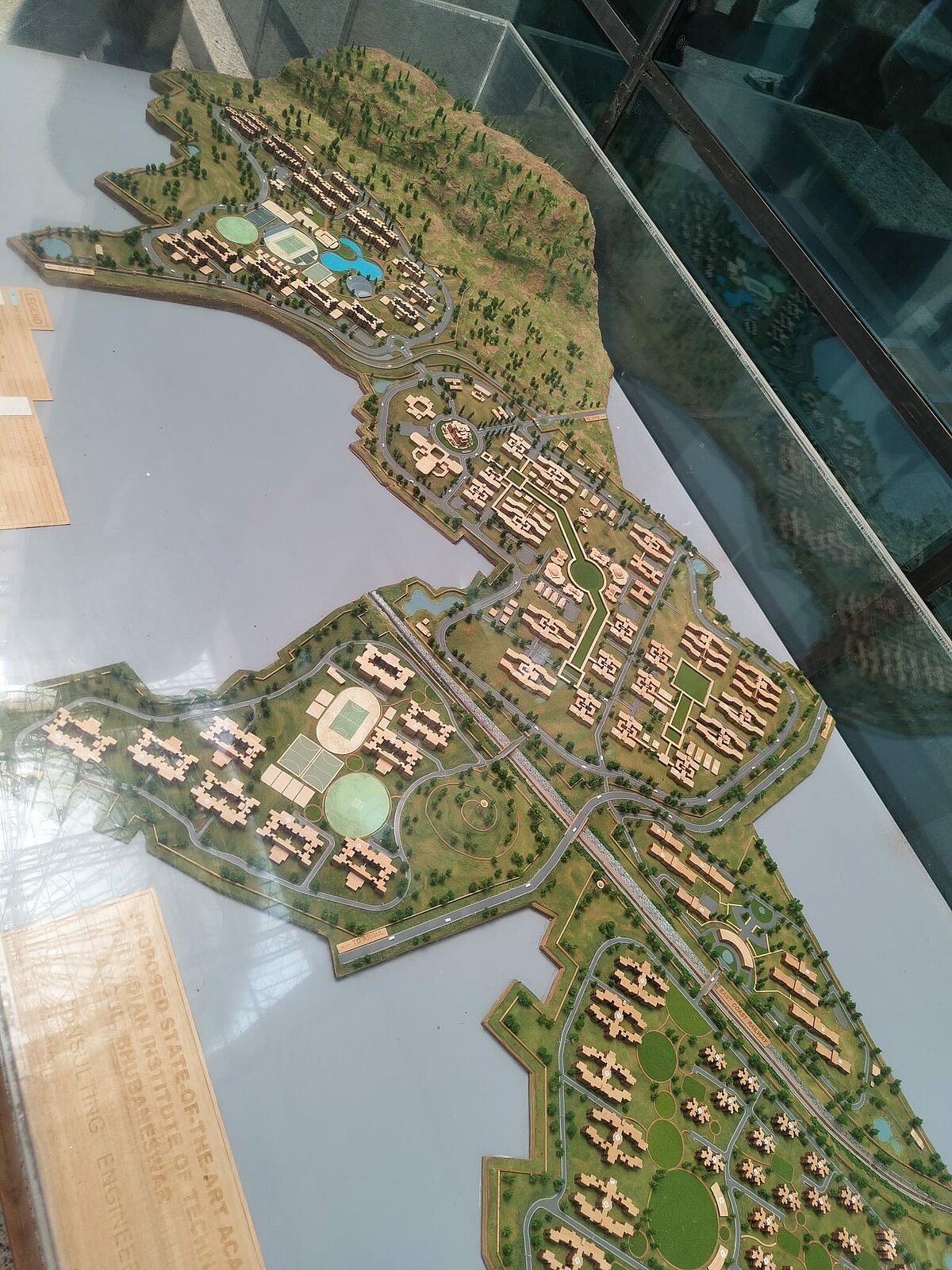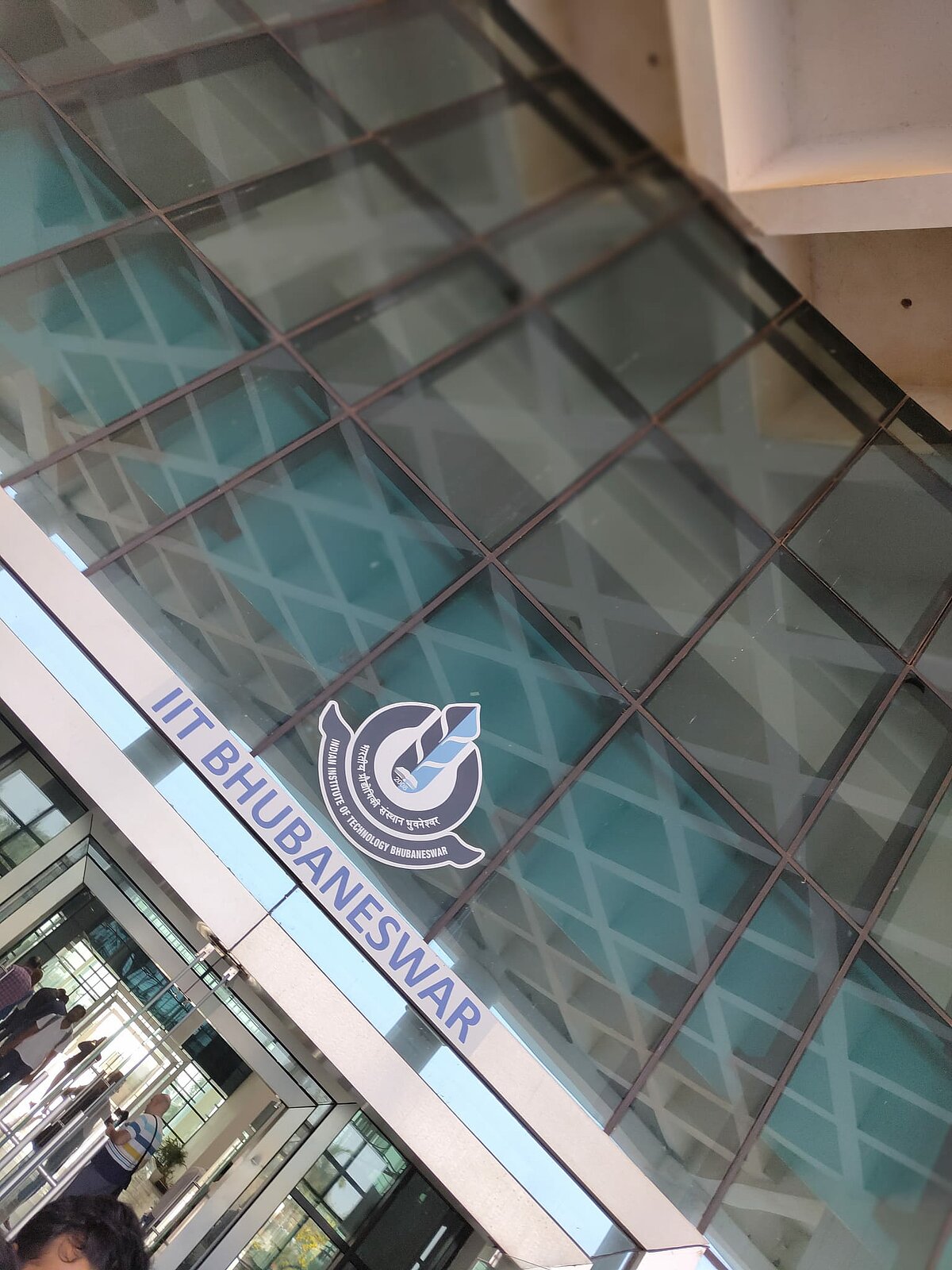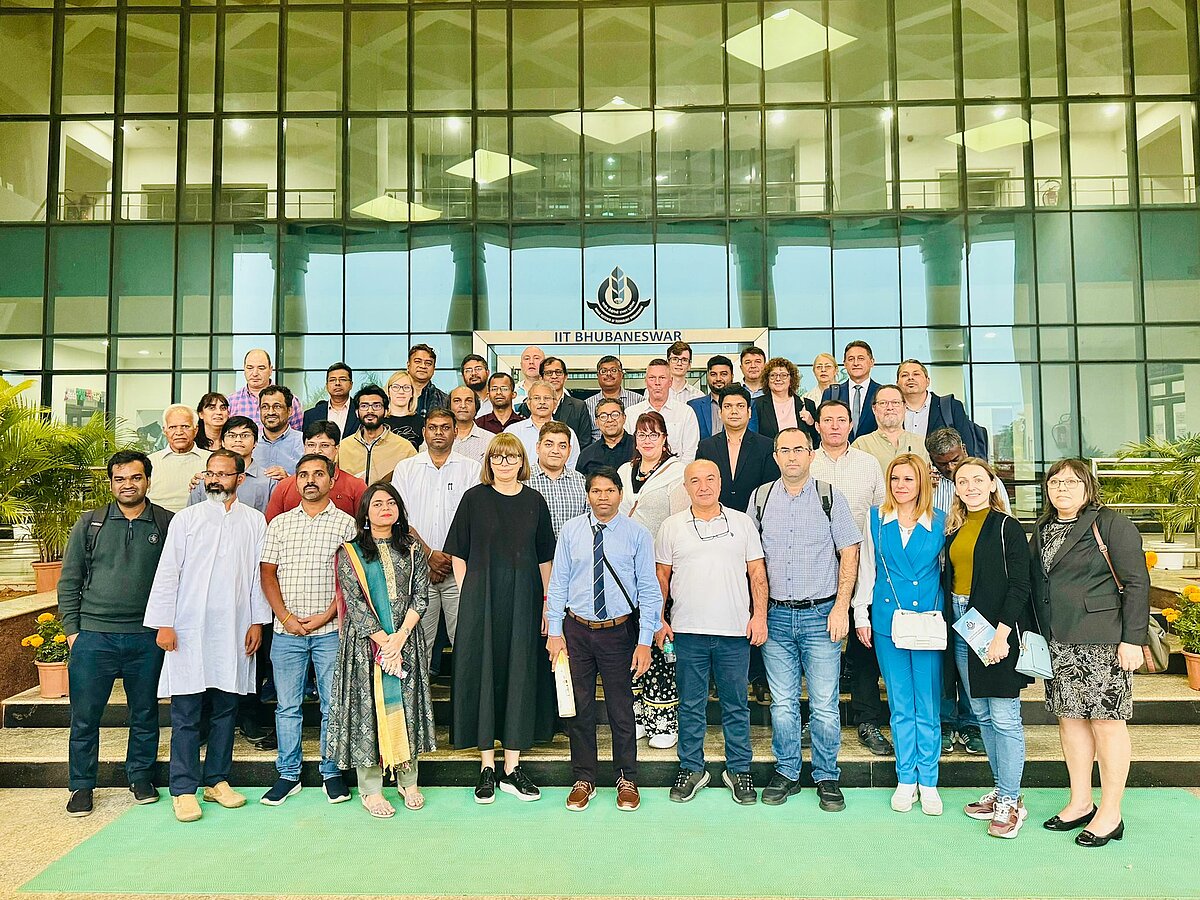
The new year started with a very far and beautiful trip - the project team from the University of Latvia went to India, where the final conference of this project was held as part of the project “Embracing diversity in ASIA through the adoption of Inclusive Open Practices”, as well as the presentation of all achieved project results. This was the fourth and last trip of this project to Asia, Indian Institute of Technology Bhubaneswar, where cooperation partners exchanged experiences and practices on how to promote a more inclusive environment in higher education institutions for students with special needs.
Indian Institute of Technology Bhubaneswar (IIT Bhubaneswar) is an Indian higher education institution established in 2008. The Institute strives to offer the best engineering education with unmatched novelties in curriculum. This institute has 7 faculties and 13 research institutes in areas such as artificial intelligence, virtual reality, design and innovation. A large number of institutes link their research with engineering. Among all higher education institutions in India, this Institute of Technology stands out for its rigorous admission procedure, high quality education standards, and strong academic environment that fosters student growth and development.
During this visit, the project team of the Faculty of Educational Sciences and Psychology of the LU took part in the final conference of this project “DiversAsia International Conference on Inclusive Higher Education, DiversAsia Toolkit, Accessibility Checker, and Best Practices”. Professor Linda Daniel spoke on both days of the conference, offering valuable insights and practical recommendations on promoting an inclusive environment within higher education institutions. She emphasized key principles that should be considered when developing inclusive strategies for these institutions. On the second day of the conference, along with other project partners, prof. Daniela outlined what basic principles should be observed by the creators of digital online courses in order to support and promote the improvement of students' knowledge, thinking about their integration in the study process. Representatives from other cooperating organizations presented the developed tools and technologies that practically facilitate and promote the learning process for students with special needs.
One of the most significant advantages of this project is the creation of a toolkit that offers practical guidance and raises awareness regarding the standards that should be adhered to when addressing the needs of students with special requirements. All project partners actively contributed to the development of this tool, which comprehensively encompasses detailed information on establishing an inclusive environment and designing inclusive learning materials. The information gathered in the tool provides recommendations and explains theoretical and pedagogical guidelines that help higher education institutions to create an integrative study process. In addition, the tool provides practical advice for creating digital learning materials, assuming that the specifics of these learning materials is dedicated to supporting students and their opportunities to gain knowledge while studying. The toolkit collects recommendations that help higher education institutions to develop strategically, working directly with the creation of an inclusive environmental policy.
In general, the project lasted for three years and during that time considerable work was done to promote inclusive higher education, to take care of public education in these issues and, most importantly, to promote full integration of students in the study process. The entire project team has worked on gathering good practices from around the world, conducted research on inclusive higher education in India and Bangladesh, and published several scientific publications on inclusive higher education.
More about the project DiversAsia:
https://diversasia-accessible-he.eu/ and https://www.facebook.com/DiversAsia/
Partners involved in the project: The project involves 11 partners from different European and Asian countries - The leading partner of the project is Nottingham Trent University (UK). Participates in the project from India (Indian Institute of Technology Bhubaneswar and Vellore Institute Of Technology Trust-Vit University), Bangladesh (Bangladesh University of Engineering and Jahangirnagar University), Latvia (University of Latvia), Turkey (Gazi University), Serbia (SoftQNR), Bulgaria (Plovdiv University “Paisii Hilendarski” and NARHU, National Association of Professionals Working with People with Disabilities) and Belguim (PHOENIXKM BVBA).
The University of Latvia is represented in the project by: Prof. Linda Daniela (project manager), Art Rūdolfa (project researcher), Astra Rūdolfa (assistant project manager).
Project Nr.: 618615-EPP-1-2020-UK-EPPKA2-CBHE-JP.
Project term: from January 15, 2021 to January 14, 2024.
The total amount of funding allocated to the project is EUR 1 00 00 00,00.

 Academic Centre
Academic Centre